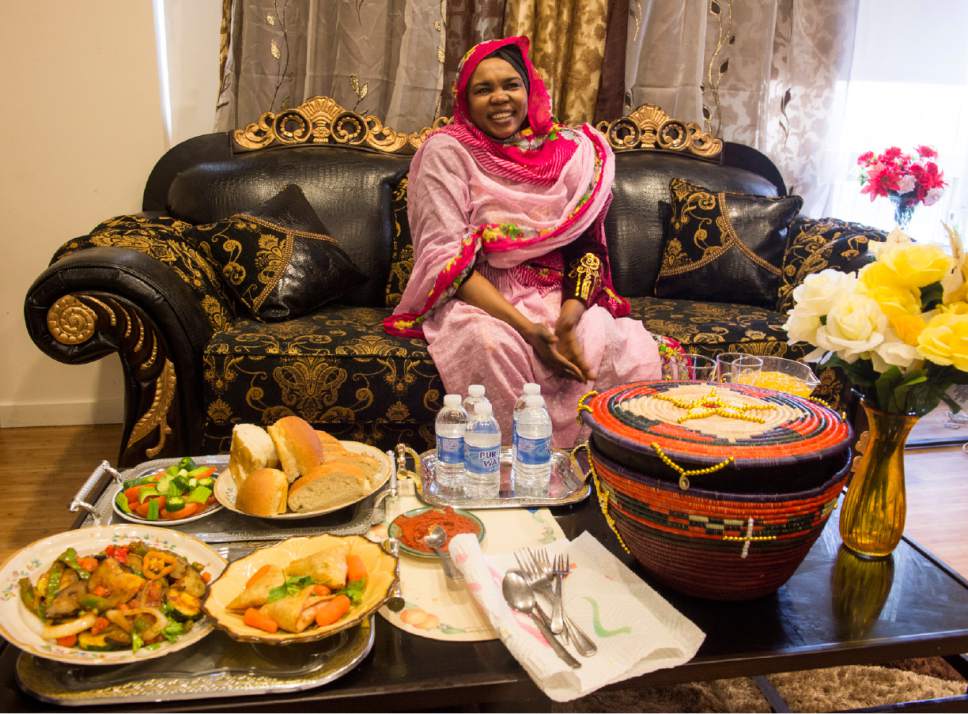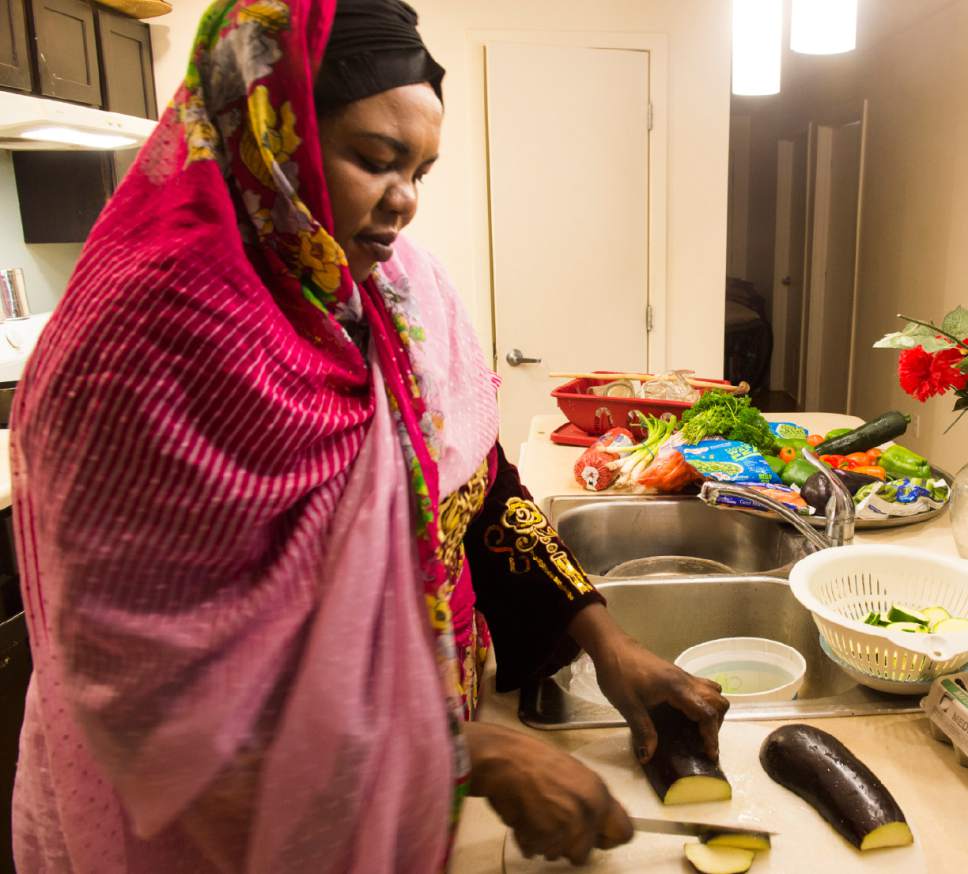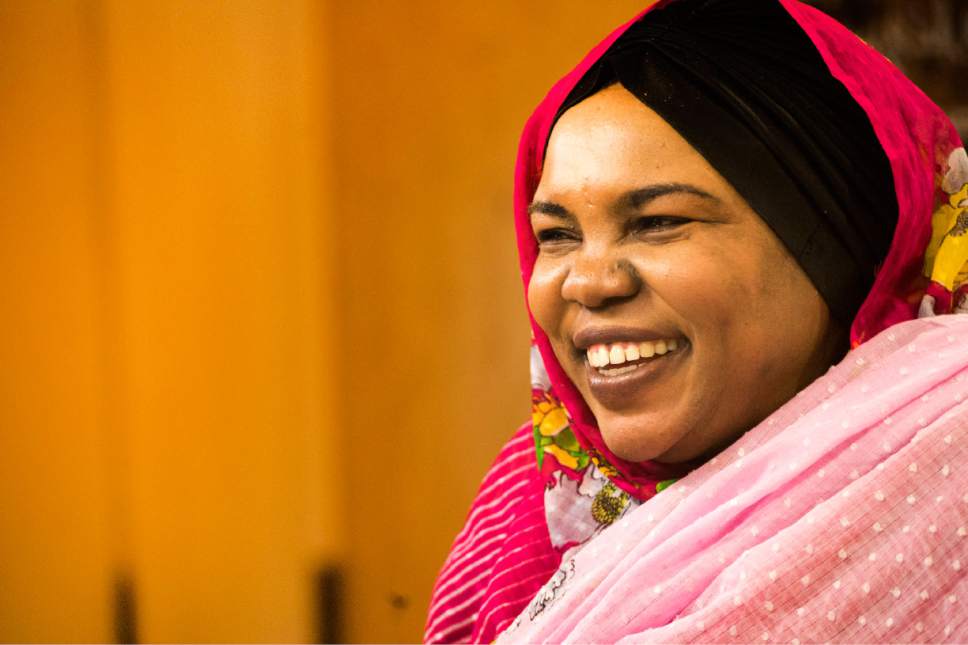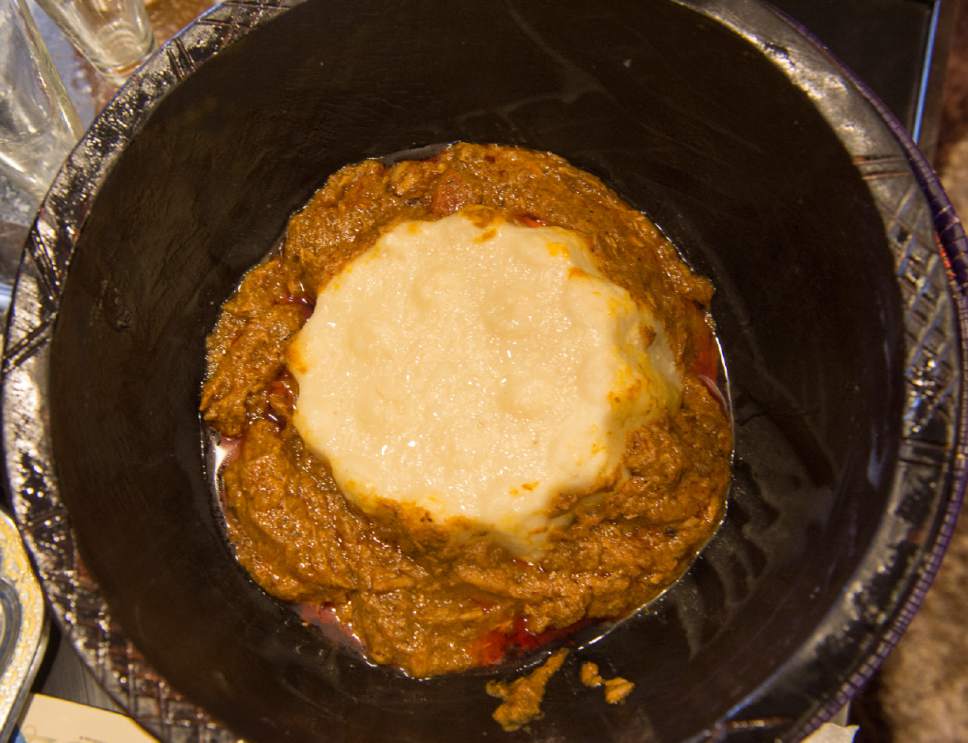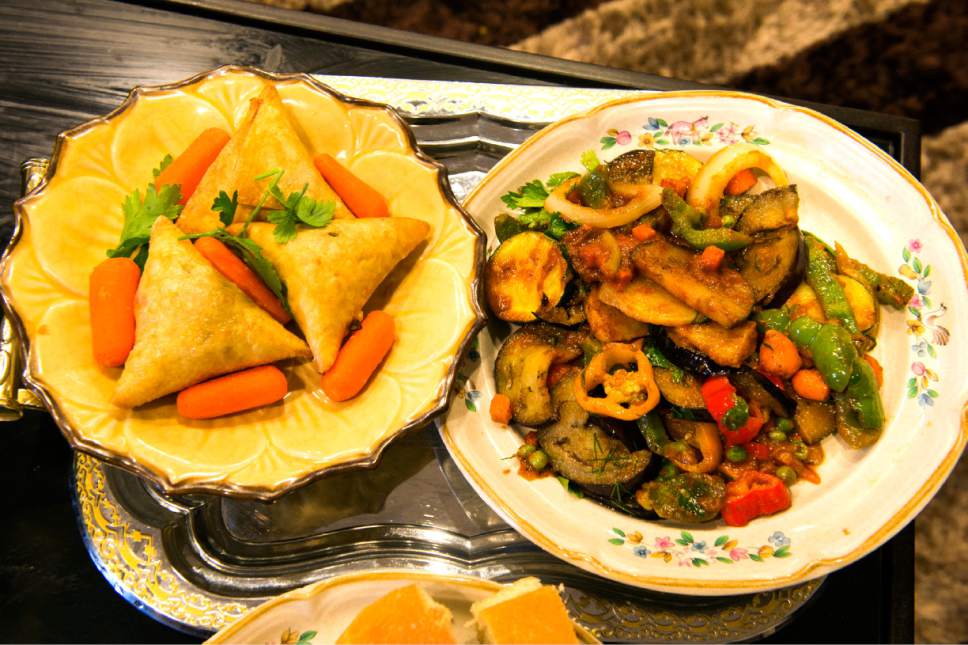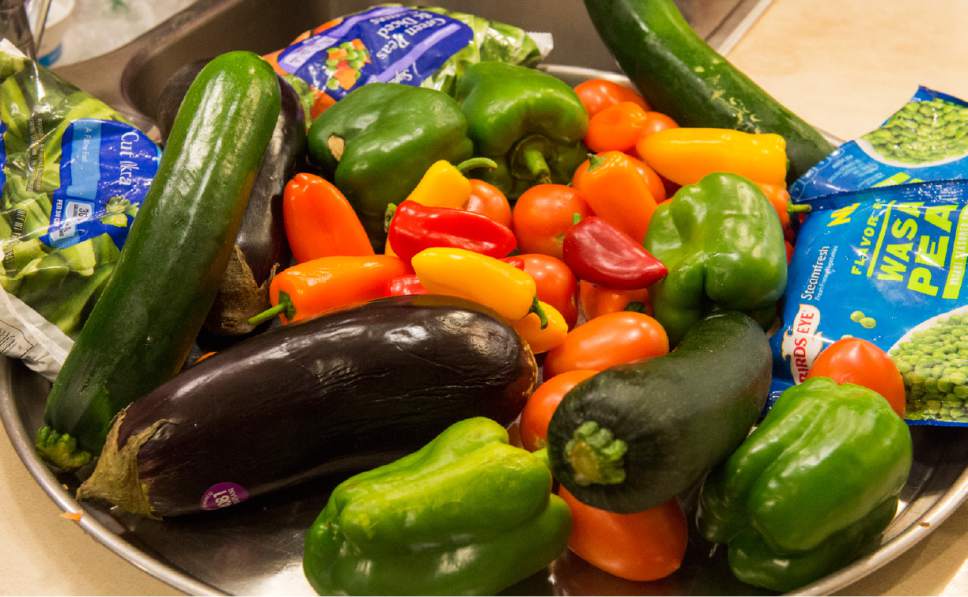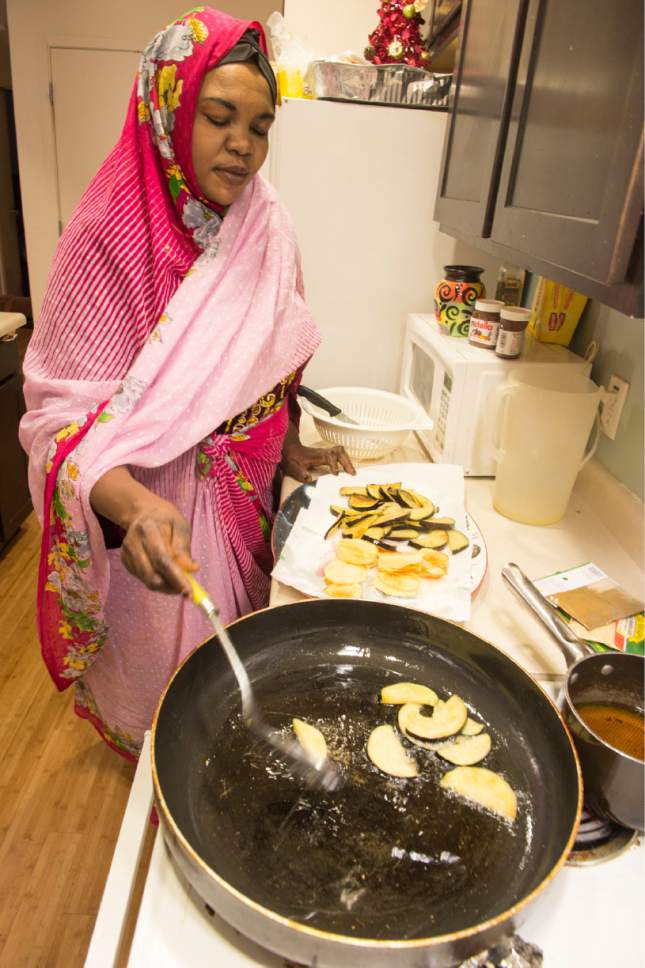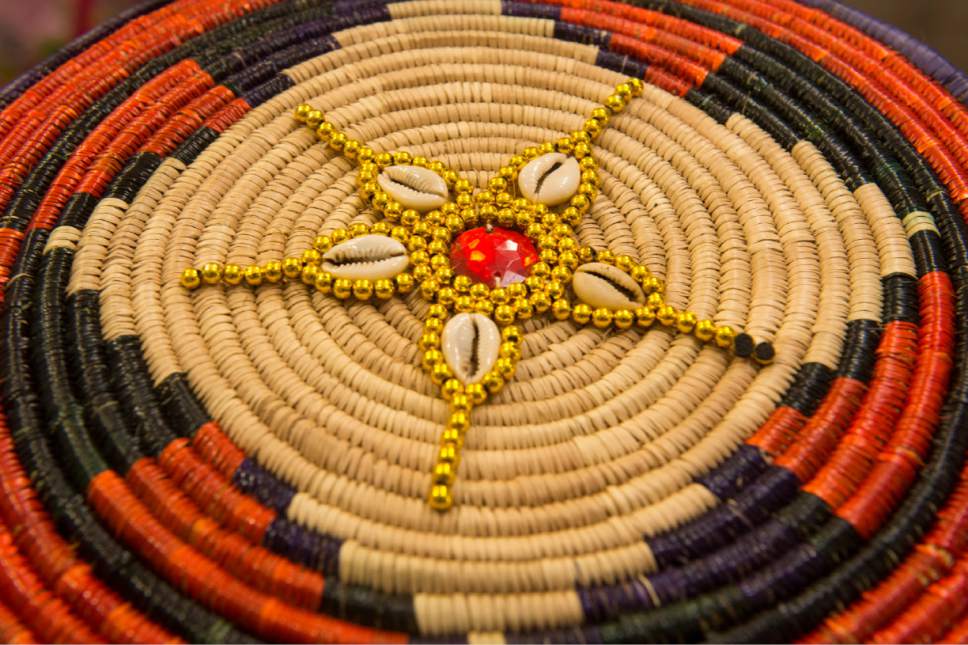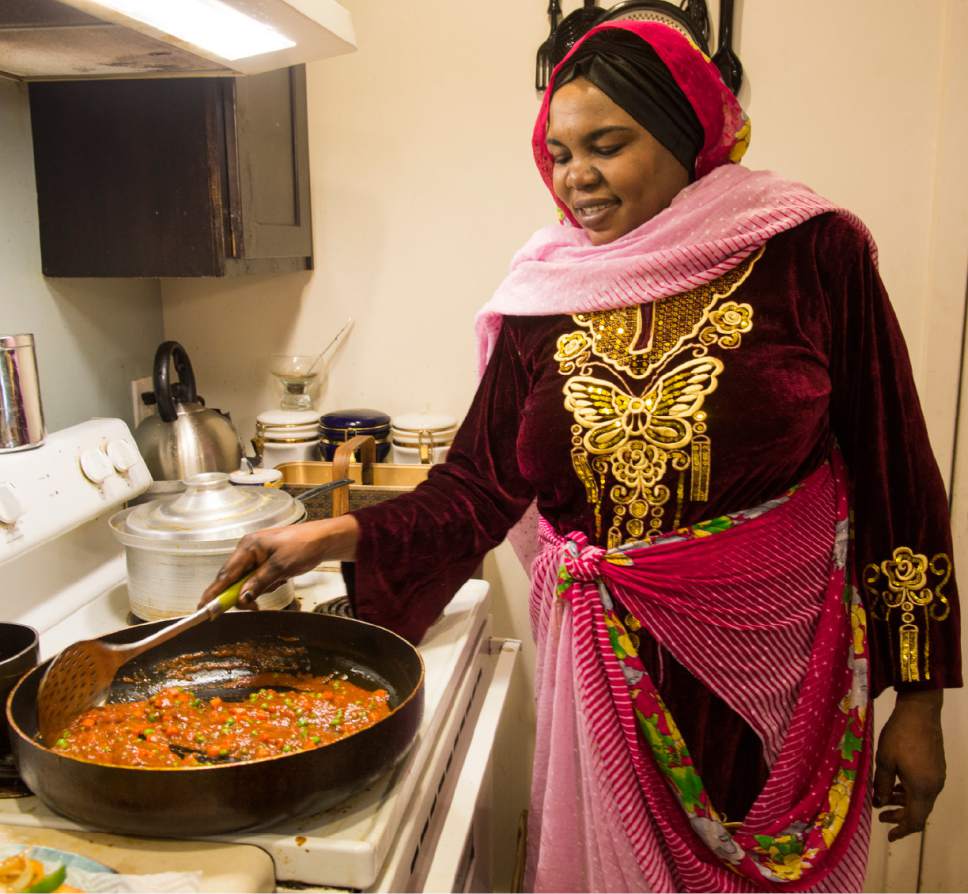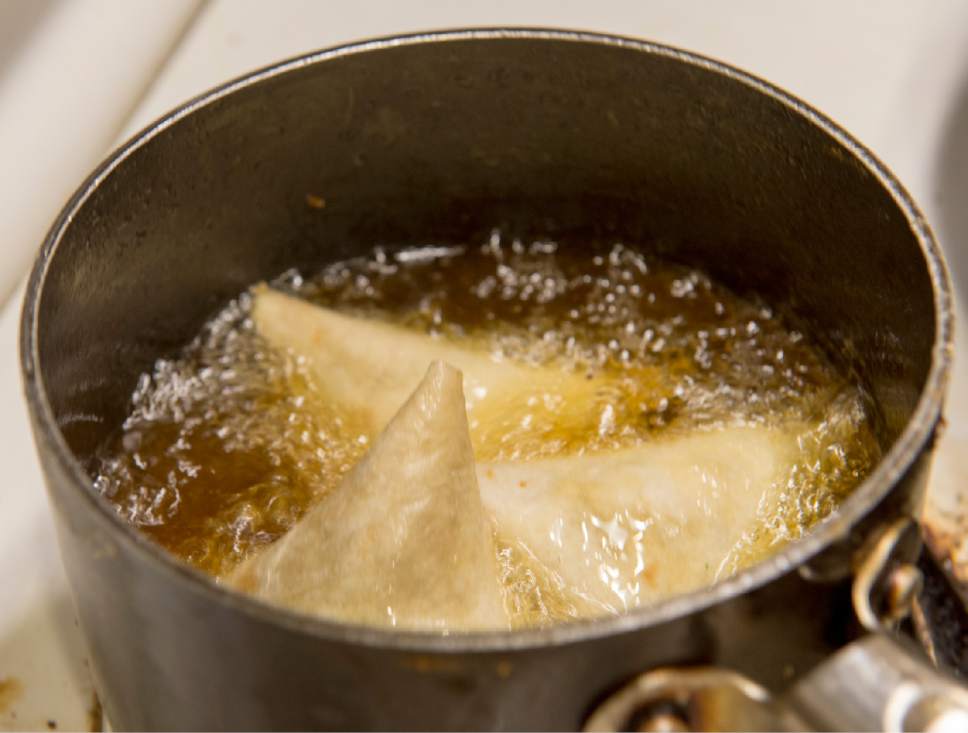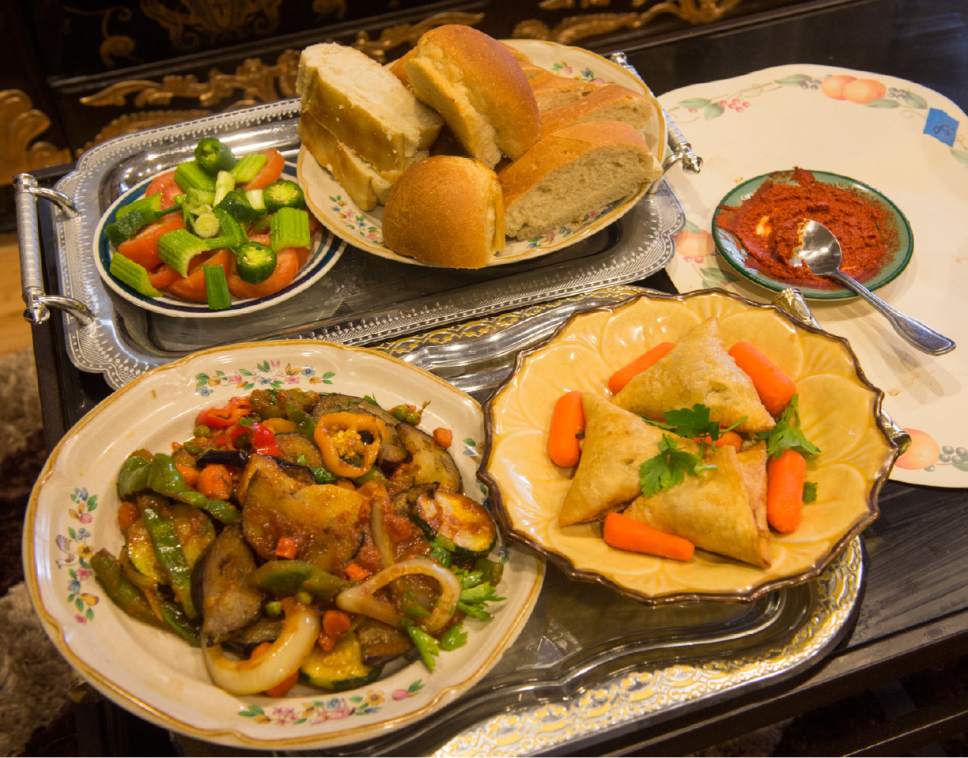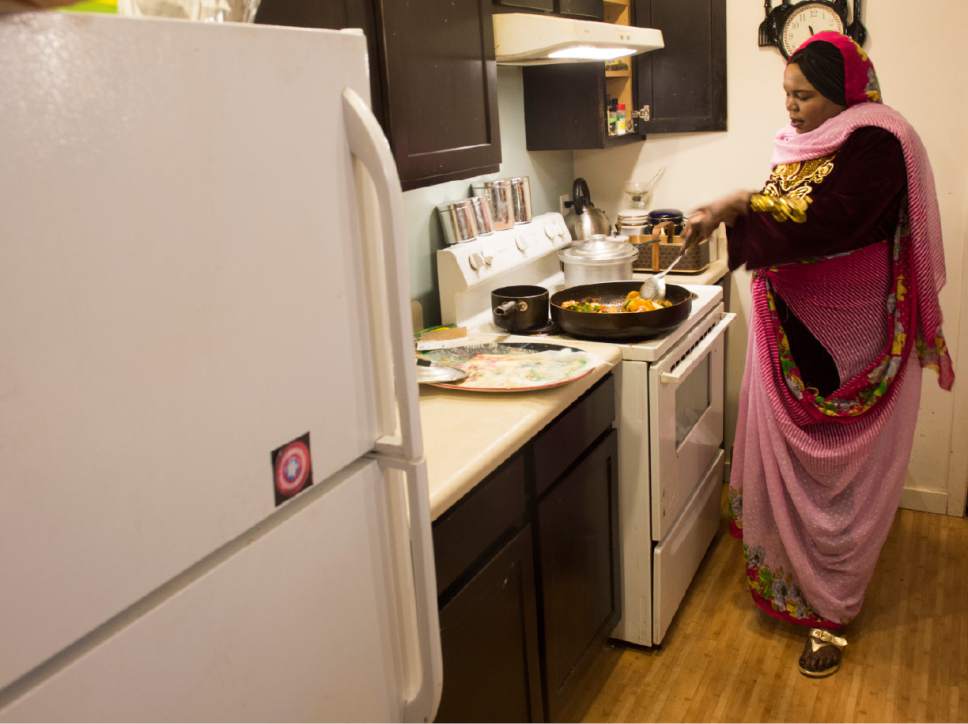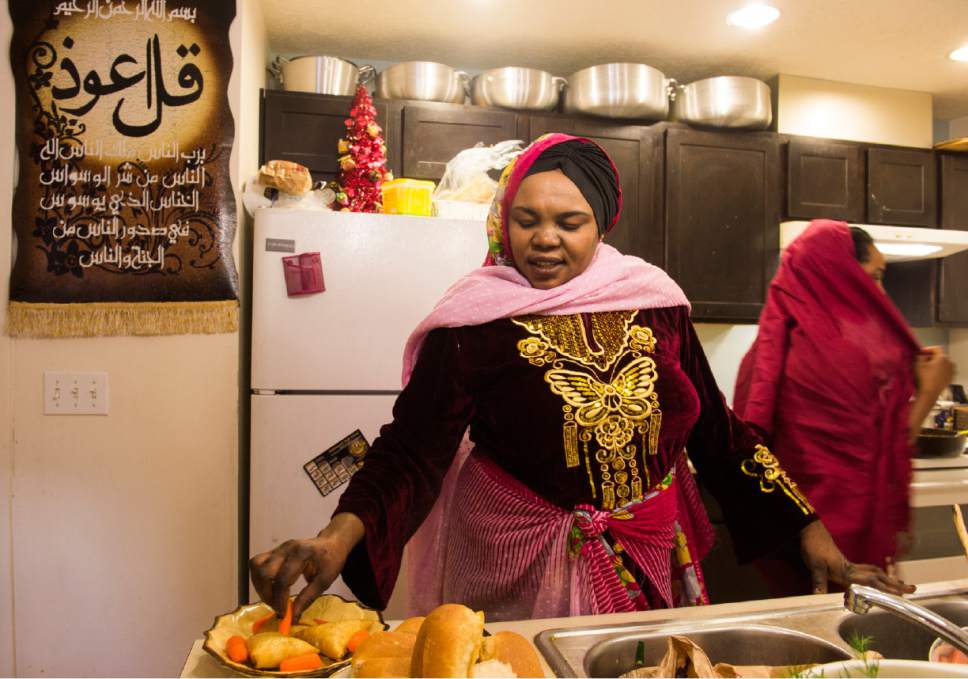This is an archived article that was published on sltrib.com in 2017, and information in the article may be outdated. It is provided only for personal research purposes and may not be reprinted.
A smile lights up Kaltum Mohamed's face as she readies the ingredients for a dish called moshakl she often cooked in Nyala, her hometown in the war-torn Darfur region of southwest Sudan.
She loves cooking African dishes and takes pride in her craft.
Kaltum, her husband, Ahmed, and their two children escaped the genocidal slaughter in Darfur in 2004. They fled to Libya, where things later turned deadly as well.
Recently, in the comfort of their South Salt Lake apartment, Kaltum sliced zucchinis, eggplants, potatoes and onions to prepare the dish, a fried and seasoned medley of vegetables. To accompany it, she would create asida, a boiled flour pudding served with dagareda, a meat and tomato sauce seasoned with garlic, cumin, black pepper, dill weed and parsley.
It's a lot of work, but she dove into it with a sense of purpose.
Fighting in Darfur continues — ethnic cleansing supported by leaders in Khartoum, the capital in the eastern part of Sudan. Khartoum and the surrounding area are dominated by Arab Muslims. Darfur, by contrast, is made up primarily of black Muslims, while South Sudan is predominantly black Christians.
"In Darfur, people would come and kill everything they see," Kaltum said. "We were so afraid we would lose our kids."
Some of her extended family members, she lamented, were killed.
They escaped to Benghazi, Libya, in 2005, where Kaltum and Ahmed had three more children before that country disintegrated into civil war. In 2011, they retreated again, this time seeking shelter in a dusty and precarious refugee camp on the Libyan-Egyptian border.
"It was a very harsh time for us in the camp," she said. "Thank God for the U.N. peacekeepers."
Their luck changed in April 2013, when the U.N. High Commissioner for Refugees selected them for immigration to the United States.
Refugees do not get to choose where the U.N. will send them. Under the Obama administration, this country accepted 110,000 refugees each year. President Donald Trump said he will cut that number in half.
The Mohamed family members were sponsored by the International Rescue Committee (IRC). Kaltum also gets support from Women of the World (womenofworld.org), a Salt Lake City-based nonprofit that seeks to help refugees assimilate into American culture. Four years after their arrival, they seem at peace in Utah.
Kaltum's kitchen is stocked with large pots and pans. She is used to cooking for big gatherings, she explained, stirring and seasoning the vegetables.
Memories flood back as she fixes the asida, a dish she regularly made in Sudan. "It reminds me of my [extended] family," she said. "We often gathered to eat together."
Her hometown, Nyala, is a trading center known for its textiles and leather goods. Ahmed owned a small clothing shop there. The couple had a comfortable home in the bustling city of half a million. Life was good, Kaltum said.
She recalled her childhood, when she and her schoolmates dressed in nice uniforms and grew up in tranquility. At soccer games, they cheered and sang glorious songs about their country.
"It was beautiful and peaceful," she said. "But then we lost everything."
Ahmed was ordered out of his store at gunpoint. There was no going back.
The unrest in Sudan and the accompanying genocide are the products of ethnic prejudices, oil money and the expansion of the Sahara that is making arable land scarcer in Darfur.
South Sudan is rich in oil. But most of the profits were kept in Khartoum, near the northern ports on the Red Sea, where it is exported, mostly to China. That is chief among reasons why South Sudan broke away from Sudan in July 2011.
The oil money financed Khartoum's aggression in Darfur. It paid for bombers, helicopter gunships and financed the Janjaweed, the Sudanese Arab militias made up of herdsmen who raid towns and villages on horseback, burning houses, raping and killing the black Muslim residents.
An estimated 480,000 people have been killed in Darfur, according to the U.N. Some 2.8 million have been displaced.
Despite those horrors, Kaltum and her family have been able to move on.
Their eldest daughter, Masagid, 19, shares her mother's sunny disposition and infectious smile. She attends Salt Lake Community College training to become a dental hygienist.
Her other daughters, Maazah, 7, and Manra, 8, attend public school, as do sons, Abdul,11, and Mohamed, 16. They act like regular, fun-loving kids.
Ahmed works at a chocolate factory, and Kaltum has a fledgling Sudanese catering business called Mother of All. She started the business with the help of Spice Incubator Kitchen, a project of IRC, in partnership with Salt Lake County, that provides an industrial kitchen. Recently, she began operating a food truck and sells Sudanese dishes around the valley.
"We are happy to have a new life," Kaltum said. "We are happy to be safe in America."
Traditionally, Sudanese eat with their fingers, as do the people of many other African countries. The asida (flour pudding) and dagareda (tomato meat sauce) are served in a common bowl. Diners use their fingers to pull away a piece of asida and swipe it through the dagareda. The combination yields a full-bodied taste sensation. The moshakl (seasoned vegetables) compliments it with a fresh, light touch; spicy but not overbearing.
Her food truck brings a taste of Sudan to Utah. Kaltum loves that thought.


